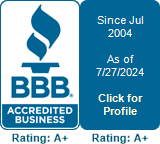Since a Chapter 13 is a repayment plan of debt, attorney fees can also be repaid in the repayment plan. Generally, the attorney will require a portion upfront depending on the complication and risk of failure. The overall fee an attorney can have paid through the plan is set by the court's local rules. This fee varies depending on your location.
Ask the attorney if he is charging you under the local "no-look" fee or will be billing you hourly as you proceed through the case.
What an attorney charges you upfront should not be your only consideration. Compare attorneys to see if how your plan is structured and what you are repaying monthly is feasible. A low upfront fee to file is of little use if you are unable to afford the repayment plan.
Bankruptcy Quote .com
Chapter 13 Bankruptcy
Cost of a Chapter 13
What Makes A Chapter 13 Complicated?
Chapter 13 is a restructuring or repayment of debt.
Low income to fund the plan and afford the payments;
Attempting to keep more secured property than you can afford;
High back taxes that must be repaid;
401(k) repayment loans that reduce disposable income;
Non-traditional income that fluctuates or relies on periodic commissions;
Vulnerability to high out-of-pocket medical expenses or repairs during the Chapter 13.
Structuring a Chapter 13 plan
Bankruptcy quotes are helpful. However, a free consultation is the best first step. .
How does a Chapter 13 Repayment Plan work?
Chapter 13 bankruptcy is most commonly used to catch up on missed mortgage payment, vehicle payments, or repay debt that cannot otherwise be eliminated in Chapter 7. Also, if an individual has filed a Chapter 7 within the last 8 years they are not eligible to file again and only have the protection of a Chapter 13 available. Some also just feel a moral obligation to repay their debt in a Chapter 13 bankruptcy instead of eliminating it in a Chapter 7.
A Chapter 13 repayment plan is structured generally over a 36 to 60-month period. The maximum repayment term is 5 years. You can opt to pay secured debt insider or outside of your Chapter 13. There are many considerations involved in determining whether to pay a secured debt inside or out of the plan. Talk to your attorney to determine what is best in your case.
Unsecured debt can also be paid in full or reduced in order to make the plan affordable. Because priority is given to paying certain obligations including your secured debt, attorney fees, priority taxes, and domestic support obligation, your unsecured debt is the last to receive payment as the plan progresses.
How much you pay of your unsecured debt is address by the percentage being paid of the unsecured debt. If your attorney refers to your plan as a "100 percent plan", this means you are paying 100 percent of your unsecured debt. A "zero percent plan" means you are paying nothing to your unsecured creditors. .
Signs you need the protection of a chapter 13 reorganization.
- Behind on your mortgage payments
- Vehicle is about to be repoed
- Filed a prior Chapter 7 within 8 years
- Tax debt you can't get rid of in Chapter 7
- Need to strip an unsecured 2nd mortgage
